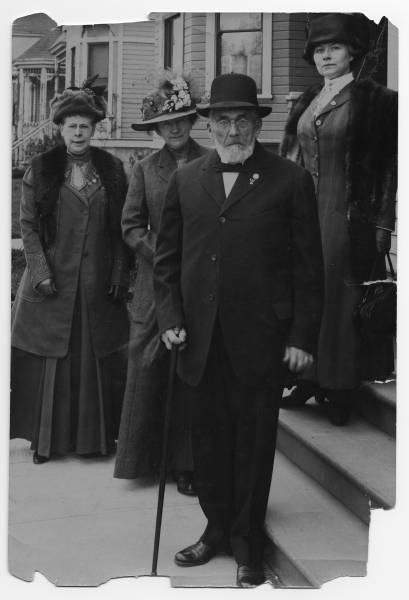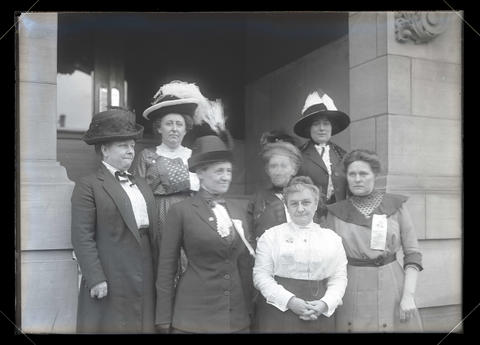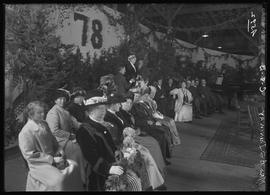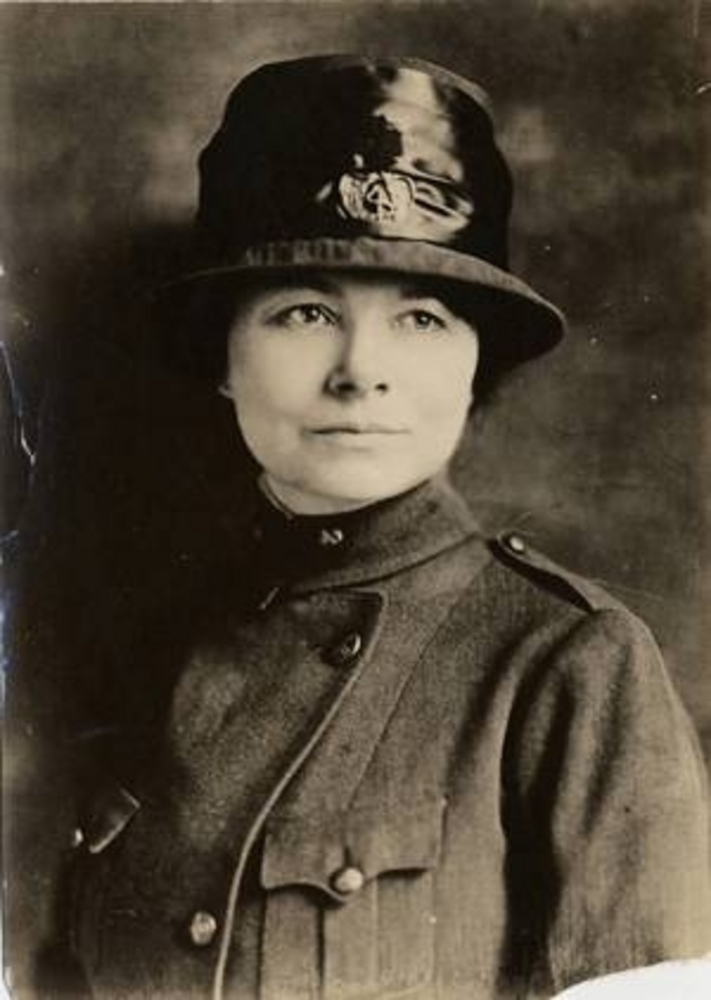Elizabeth Avery Eggert, a homeopathic physician, businesswoman, and activist, helped secure the right to vote for Oregon women. She combined a career in medicine and business with social activism, contributing to local and national reform in suffrage, public health, and philanthropy.
Born in Oxfordshire, England, in 1848, Elizabeth Avery was five years old when she immigrated with her parents to Connecticut. She attended the Ipswich Female Seminary in Massachusetts and in the late 1860s graduated from the Cleveland Homeopathic Hospital College for Women. As an alternative medical system, homeopathy had a strong following during this period and was especially welcoming to women students and practitioners.
Avery established a practice in Lawrence, Kansas, and became a member of the Kansas Homeopathic Medical Society in 1872, the first woman to be admitted to a medical society in the state. She later served as the corresponding secretary.
In September 1873, Avery married businessman Frederick Eggert. Three years later, the couple moved to Albany, Oregon, where Frederick worked in the dry goods business. They moved to Portland in 1882 and established Eggert, Young & Company, a boot and shoe store. The couple’s business interests expanded across the Pacific Northwest, and Frederick Eggert managed the Portland store until his death in 1918. Elizabeth Eggert was vice president of the Eggert-Young Company in Portland.
Elizabeth Eggert did not practice medicine after her arrival in Oregon, but she was active in business and the community. She served in various administrative offices in the Ladies' Aid Society of Portland's First Congregational Church and was involved in the Oregon State Federation of Women's Clubs, with particular interest in the state scholarship fund.
A committed suffragist, Eggert worked for the vote for Oregon women for some twenty-five years. As president of the Portland Woman's Club during the final campaign in 1912, she served on the club's Suffrage Campaign Committee as a frequent speaker and organizer for the cause. The editors of the Woman's Journal, the weekly publication of the National American Woman Suffrage Association, praised her as an influential and effective worker for the campaign.
Eggert also was involved directly in causes relating to medicine, including public health, medical relief, and fundraising for medical philanthropy. She sponsored the Portland Woman's Club's endorsements of health inspections of students in Portland public schools and spearheaded a fundraising drive for the women and children of France in World War I. She also joined the American Women's Hospitals, an international medical relief organization, and was a member of the Medical Women's International Association.
Before her death in 1935, Eggert was elected honorary president of the Doernbecher Hospital Guild.
-
![Esther Lovejoy appears on the building steps. The woman in the middle is Mrs. Mathews, and to the left is Mrs. Elizabeth Eggert. The gentleman is Francis Xavier Matthieu.]()
Dr. Lovejoy canvassing for suffrage, c.1911.
Esther Lovejoy appears on the building steps. The woman in the middle is Mrs. Mathews, and to the left is Mrs. Elizabeth Eggert. The gentleman is Francis Xavier Matthieu. Courtesy Oregon Health & Sciences University Digital Collections
-
![]()
Officers of Oregon Federation of Women's Clubs, 1912.
Oregon Historical Society Research Library, Digital Collections, Oregon Journal Negative Collection; Org. Lot 1368; Box 373; 0373G058
-
![Elizabeth Eggert attended the celebration.]()
Abigail Scott Duniway's 78th birthday celebration, 1912.
Elizabeth Eggert attended the celebration. Oregon Historical Society Research Library, Digital Collections, Oregonian glass negatives; Org. Lot 139; Negative 4592
Related Entries
-
Esther Clayson Pohl Lovejoy (1869-1967)
Physician Esther Clayson Pohl Lovejoy took an active and significant ro…
-
Woman Suffrage in Oregon
The campaign to achieve voting rights (also called suffrage or the fran…
Map This on the Oregon History WayFinder
The Oregon History Wayfinder is an interactive map that identifies significant places, people, and events in Oregon history.
Further Reading
“Oregon to be Free.” Woman’s Journal, Oct. 19, 1912, p. 330.
Eggert, Mrs. Frederick. Review of the Work and Activities of the Ladies’ Aid Organizations of the First Congregational Church, Portland, Oregon, 1851-1923. Portland, Ore.: The Association, 1923.
Kirschmann, Anne Taylor. A Vital Force: Women in American Homeopathy. New Brunswick, NJ: Rutgers University Press, 2004.






